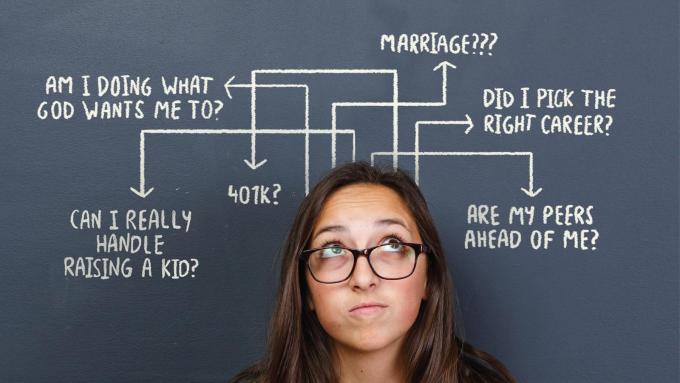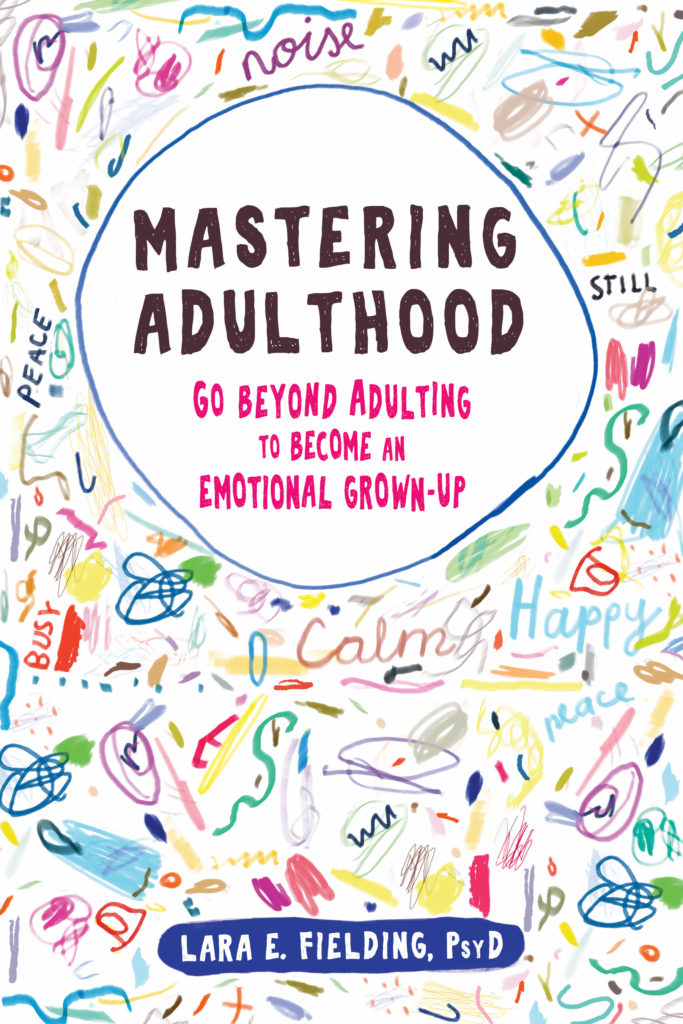“But I’m not sure!” “What if?” “I don’t know if it’s good enough.” Feelings of uncertainty and doubt come part and parcel with building a life you love. Yet it’s so easy to get hijacked by the anxiety and worry, when we don’t know for sure.
We can get paralyzed by the F.O.T.U. Fear Of The Unknown!
The Quarter-Life Crisis and FOTU
Recent surveys suggest that as many as 75% of 25-33 year olds have experienced a quarter-life crisis. As you probably know, this is a time when uncertainty, and feelings of insecurity and doubt take hold about career, relationships and finances.
Some feelings of angst during this time have always been a normal part of entering adulthood. But there is emerging evidence that FOTU and related difficulties tolerating uncertainty is on the rise in the millennial age.
In a world where our media and political leaders are less and less trust worthy, and social media is in your face fostering comparisons and competition, FOTU in becoming a big roadblock for many young adults.
According to Dr. R. Nicholas Carleton, Ph.D. (personal communication), a leader in the research focusing on the effects of uncertainty on mental health, “Millennials may indeed be having more difficulties with uncertainty than previous generations.”
FOTU in the Digital Age
We humans will do just about anything to avoid uncertainty. Certainty helps us feel confident and calm. Uncertainty creates feelings of tension, anxiety, worry, and even dread. Bizarrely, studies have found that people will actually choose to receive an electrical shock for sure, rather than possibly get one, but not know when. This ironic attachment to certainty can also trap us in the double bind that triggers anxiety and depression.
Before social media and the super connectivity our smart phones give us, we were forced to sit in uncertainty for some period of time, before we could get any kind of reassurance or an answer to a question.
Today of course, our phones offer us a constant source of reassurance. Don’t know the answer? Google it! Not sure how to get there? Mapquest it! Uncertain about the guy you like? Cyber stalk him on social media!
Technology as a constant source of reassurance may also be paradoxically contributing to reductions in a necessary amount of tolerance of uncertainty. When we become overly dependent on seeking reassurance in this way to reduce the normative levels of anxiety caused by uncertainty, we fail to develop uncertainty tolerance as a skill.
Intolerance of Uncertainty (IU) and Mental Health
The new realities of adulthood in the digital age may be creating an environment where normal discomfort with fear of the unknown is growing into the related, but more problematic Intolerance of Uncertainty (IU).
FOTU is when absence of information causes fear. Intolerance of Uncertainty (IU) develops when you have a low tolerance for experiencing that normal fear. And this is where problems can emerge.
This inability to tolerate the normal fear of the unknown has been increasingly linked to the whole spectrum of anxiety disorders, depression, and even eating disorders.
Carleton speculates that it is the intersection of unparalleled access to information is compounding paradoxical levels of uncertainty by creating “unprecedented levels of absent agency.” In other words, our tolerance of uncertainty is decreasing, as we are faced with unsolvable problems globally and have had fewer opportunities to practice forging ahead through uncertainty.
“All of which I think may be placing [Millennials] at particular risk for psychopathological challenges,” says the researcher.
Sitting in the Not Knowing
So if it is this difficulty tolerating uncertainty, which is increasing, and predicts problems with mood and anxiety, how do we start building more tolerance? Treatments have recently been studied that specifically target IU and reduce clinical levels of Generalized Anxiety Disorder.
What these treatments have in common is the focus on asking participants to engage in activities where there is uncertainty. These activities are framed as ‘opportunities to practice’, in order to:
A. Test to see if the feared outcome actually occurs,
B. Learn that the uncertainty can be tolerated.
Thus, the goal is to build the needed agency to forge ahead in the face of uncertainty.
The Practice: Digital Hygiene *
Your smart phone is an excellent way to start practicing sitting in the not knowing and skillfully observing the emotions, thoughts and action impulses that emerge. Next time you notice yourself reaching for your phone to seek reassurance:
PAUSE:
• Practice noticing the impulse, the thoughts, and emotions related to ‘need to know.’
• Stay. As best you can, sit in and with the ‘not knowing’ feeling for a bit.
• Breath. Allowing these thoughts, feelings and impulses to be present for just a bit longer than is comfortable.
Each time you practice extending the time between the uncertainty and the reflexive reaction to reach for you phone to Google or check, you are building your skillfulness. Allowing yourself the practice of sitting in the not knowing may just build the distress tolerance you need for Mastering Adulthood in the millennial age.
This blog was inspired by Dr. Fielding’s upcoming book: Mastering Adulthood: Go Beyond Adulting to Become an Emotional Grownup. To learn more helpful skills for Mastering Adulthood, sign up for the Mindful-Mastery SKILL WEEKLY newsletter, or follow me on Facebook, Twitter, or Instagram. Or YouTube for skills videos!
*This exercise was generously shared and adapted from my esteemed colleague Dr. Blaise Aguire, MD, Medical Director at McClean Hospital’s DBT program.


